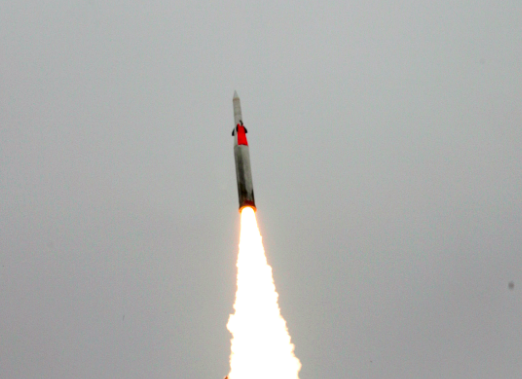By LGen (Ret’d) George Macdonald
The increasingly-aggressive provocation by North Korea has resulted in a renewal of the discussion regarding Canadian participation in North American ballistic missile defence (BMD). This lightning-rod issue was essentially buried by the Martin Liberal government in February 2005 when a decision was taken not to seek participation in this US program. This choice was driven largely by political considerations of the time, which overrode any logical argument to incorporate this important capability into our North American Aerospace Defence, or NORAD, partnership.
Now, twelve years later, the threat presented by the capabilities of the so-called rogue nation of North Korea have evolved (along with their rhetoric) to the point where the fundamental rationale for the US-developed missile defence system is more valid than ever. It is time to reconsider BMD cooperation with the Americans, if they’ll have us.
Naysayers will be quick to dredge up all the sensational and incomplete arguments that surfaced in 2004 and set so many Canadians against BMD. Opponents maintained that there was no threat, that BMD would precipitate nuclear proliferation, that a system would lead to the deployment of weapons in space, that it would be too expensive, that it would destabilize the strategic power balance, and so on. The fact that these points prevailed was remarkable.
In truth, the system being developed and tested did not involve nuclear weapons, and there is a strong argument that the deployment of a BMD system would actually contribute to stability, without any real perturbation of the nuclear strategic balance. Whether Canada would be asked to make a contribution of some kind if we asked to join was never established, because we never managed to get past the negative perception of the system.
Now, at this time, a functioning capability exists after major investment in development, testing and implementation by the US. It is capable of providing a realistic defence against a limited attack, such as that capable by North Korea. Importantly, it constitutes a significant deterrent and enables the feasibility of pursuing options less than outright retaliation if an attack occurred.
Our lack of participation in BMD is an anomaly in our NORAD relationship. For 60 years, we have cooperated in the detection, warning and defence of the airborne threat from bombers and cruise missiles; we have participated together in the missile detection and warning mission to ensure that an effective deterrent is in place, backed up by the U.S. capability to respond, if ever needed. But when technology evolved to the point where defence against ballistic missiles was reliable enough to be deployed, we declined to be involved in this most logical extension of the NORAD role.
It is in our national security interest – indeed, a sovereign responsibility — to be involved in BMD. The outcome of an actual attack on U.S. territory should be of direct and dire concern to us all. The interconnectedness of our economies and infrastructures is such that we cannot disassociate ourselves from the threat of a missile attack. The events of 9/11 provide an example of the consequences for us when the US is attacked.
It is interesting that Canada continues to support the project to develop and implement a NATO ballistic missile defence system. When it comes to collective defence with our NATO partners, we have accepted the majority view that BMD is important to protect alliance territory. Why, then, would we not be in favour of providing similar protection for Canadian territory?
The strident claims of North Korea, and the recent deployment of U.S. resources to take defensive action if a missile is launched, have once again reminded us of the potential dangers from a ‘rogue’ ballistic missile attack. It is time for Canadians to reassess, and get involved in North American defence – our participation in NORAD is the obvious vehicle to re-open discussion.
Yes, there might be an “entry fee” to be paid in terms of personnel and financial expenditure, but this will be negotiable with our closest ally. We should be able to find an acceptable arrangement where we can participate and have some influence on the employment of the capability, rather than sitting on the sidelines.
Much has changed in the years since the negative BMD decision was taken. Let’s take advantage of our close relationship with the U.S. to explore meaningful defence options to our mutual advantage.
LGen (Ret’d) George Macdonald is a former consultant in Ottawa. He was the Deputy Commander of NORAD from 1998 to 2001, during a time of intense BMD development in the US, which included the direct involvement of Canadian personnel assigned to the binational partnership.

